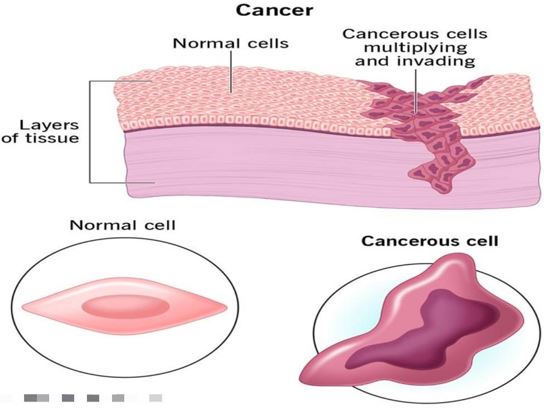Unfolding the therapeutic potential of Ayurvedic Herbal Plants in the management of Arbuda (Cancer) - A Conceptual Study
DOI:
https://doi.org/10.21760/jaims.10.2.29Keywords:
Arbuda, Cancer, Ayurveda, Herbal plants, AnticancerAbstract
Introduction: Cancer is a devastating disease characterized by the abnormal, uncontrolled proliferation of cells. It invades surrounding tissues and metastasis to other parts of the body. Despite significant strides in modern cancer treatment, the search for effective and less invasive therapies continues. Ayurveda, an ancient Indian system of medicine, offers a holistic approach to healthcare, including the management of chronic diseases such as cancer.
Materials and Methods: This study involved a thorough review of various Ayurvedic texts, research papers, and scientific articles focusing on the Ayurvedic and modern understanding of cancer and the potential role of herbal plants in its management.
Discussion: The herbal plants may be reducing the oxidative effects and inflammation caused by tumour cells. These herbs may improve mitochondrial membrane permeability which improves DNA binding, blocks the use of glucose by cancer cells, blocks the cellular signalling pathways of cancer genes and DNA mutations in normal cells, inhibition of invasion of cancer cells in the body.
Conclusion: Numerous studies have demonstrated the efficacy of herbal plants in cancer prevention and treatment. These plants may offer promising therapeutic benefits by modulating various cellular pathways involved in cancer development and progression. Further research is crucial to fully understand the mechanisms of action of these herbs and to develop safe and effective herbal-based therapies for cancer.
Downloads
References
World Health Organization. Cancer [Internet]. Geneva: WHO; [cited 2025 Apr 7]. Available from: https://www.who.int/health-topics/cancer.
Sharma PV. Dravyaguna-Vijnana. Vol. 2. Varanasi: Chaukhamba Bharati Academy; 1992.
Devi PU, Sharada AC, Solomon FE, Kamath MS. In vivo growth inhibitory effect of Withania somnifera (Ashwagandha) on a transplantable mouse tumor, Sarcoma 180. Indian J Exp Biol. 1992 Mar;30(3):169-72. PMID: 1512021.
Kuttan R, Bhanumathy P, Nirmala K, George MC. Potential anticancer activity of turmeric (Curcuma longa). Cancer Lett. 1985 Nov;29(2):197-202. doi: 10.1016/0304-3835(85)90159-4. PMID: 4075289.
Lébri M. Phytochemical analysis and in vitro anticancer effect of aqueous extract of Abrus precatorius Linn. Der Pharma Chemica. 2015;7(8):112-7. ISSN: 0975-413X.
Kothari AB. In vitro studies on antimutagenicity of water, alcoholic, and oil extracts of Semecarpus anacardium. Indian J Pharmacol. 1997;29(5):301. ISSN: 0253-7613, CODEN: INJPD.
Kuruppu AI, Paranagama P, Goonasekara CL. Medicinal plants commonly used against cancer in traditional medicine formulae in Sri Lanka. Saudi Pharm J. 2019 May;27(4):565-73. doi: 10.1016/j.jsps.2019.02.004. PMID: 31061626; PMCID: PMC6488922.
Joshi A. Phytochemical analysis of Taxus baccata and evaluation of its anticancerous properties in BHK-21 cell line. J Pharm Res. 2014;14(1):008. doi: 10.5958/j.0972-0561.14.1.008.
Ahmad R, Mohsin JM, Srivastava HN, Khan A. Evaluation of stem human in vivo anticancer activity of Tinospora cordifolia against breast cancer and voro cell lines. J Med Plant Sci. 2015;3(4):33-7. ISSN: 2326-3862.
Hiradeve S. Evaluation of anticancer activity of Plumbago zeylanica Linn. leaf extract. Int J Biomed Res. 2011;1(2):52. doi: 10.7439/ijbr.v1i2.52.
Pandey S. In vivo antitumor potential of extracts from different parts of Bauhinia variegata Linn. against B16F10 melanoma tumor model in C57BL/6 mice. Appl Cancer Res. 2017;37:33. doi: 10.1186/s41241-017-0039-3.
Nourazarian SM. Effect of root extracts of medicinal herb Glycyrrhiza glabra on HSP90 gene expression and apoptosis in HT-29 colon cancer cell line. Asian Pac J Cancer Prev. 2015;16(18):8563. doi: 10.7314/APJCP.2015.16.18.8563.
Ogar GO. Influence of ethanolic extract of Allium sativum on TP53 gene and its anticancer potential in N-Nitrosodiethylamine-induced hepatocellular carcinoma in male albino rats. Iran J Basic Med Sci. 2022 Apr;25(4):497-505. doi: 10.22038/IJBMS.2022.62295.13787. PMCID: PMC9150801, PMID: 35656070.
Moringa Oleifera extracts modulate oxidative damage and cytotoxicity induced by hydrogen peroxide. Hum Exp Toxicol. 2011;30(9):1359-69.
Biswas D. Anticancer activity of root extracts in non-small cell lung cancer Asparagus racemosus A549 cells. Asian J Pharm Pharmacol. 2018;4(6):764-70.
Kowsalya R. Anticancer activity of Cynodon dactylon L. root extract against diethyl nitrosamine-induced hepatic carcinoma. South Asian J Cancer. 2015;4(2):83-87. doi: 10.4103/2278-330X.15569. PMCID: PMC4418089, PMID: 25992348.
Aegle marmelos (L.) inhibits proliferation of ascites carcinoma transplanted Ehrlich in mice. Biol Pharm Bull. 2005;28(1):58-64. doi: 10.1248/bpb.28.50. PMID: 15635164.
Jose BE. Phytochemical investigation and anticancer activity of Vitex negundo. Int J Pharm Sci Res Rev. 2021;66(1):65-9. doi: 10.47583/ijpsrr.2021.v66i01.012.
Motadl LR. Cannabidiol and Cannabis sativa as a potential treatment in vitro for prostate cancer cells silenced with RBBP6 and PC3 xenograft. Mol Biol Rep. 2023;50(5):4039-47.
Luke AM. Ocimum sanctum as a chemotherapeutic agent against oral squamous cancer. Saudi J Biol Sci. 2021;28(1):887-90. doi: 10.1016/j.sjbs.2020.11.030.
Antitumor studies with extract of Calotropis procera root employing Hep-2 cells. Indian J Exp Biol. 2009;47(May):343-8.
Omidiani N. Cytotoxicity of Achyranthes aspera root acetone extract on HeLa cell line. Not Sci Biol. 2020;12(3):546-55. doi: 10.15835/nsb12310764.
World Health Organization. Cancer [Internet]. Geneva: WHO; [cited 2025 Apr 7]. Available from: https://www.who.int/health-topics/cancer.
Anand D, Hecht FM. Correlating traditional Ayurvedic and modern medical perspectives on cancer: results of a qualitative study. J Altern Complement Med. 2014;20(5):364-70.
Murthy KRS. Sushruta Samhita. Varanasi: Chaukhamba Orientalia; 2017. Nidanasthana 11/13-217.
Gopal KVR. Harrison’s Principles of Internal Medicine. 19th ed. Vol. 2. Oncology and Haematology. New York: McGraw Hill; 2015. p. 4688.
Balachandran P, Govindarajan R. Cancer—an Ayurvedic perspective. Pharmacol Res. 2005;51:19–30.
Ramakrishnan Y, Manohar AI, Mamata P, Shreekant KG. Plants and novel antitumor agents: a review. Indian Drugs. 1984;21:173–85.
Dornala SN. Scope of Ayurveda in integrative oncology. Ann Ayurvedic Med. 2012;1(4):158-65.
Sharma PV. Sushruta Samhita Nidanasthana. Varanasi: Chaukhamba Sanskrit Series; 2004. Vol. 1.















